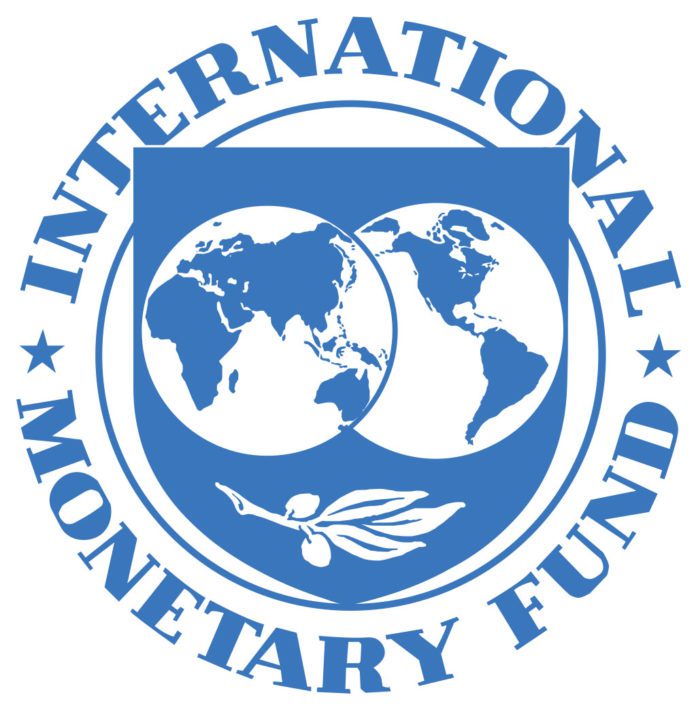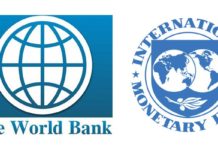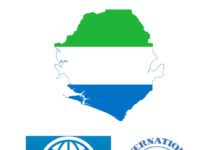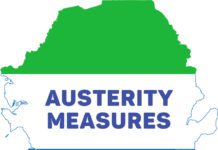
By Mahmud Tim Kargbo
Eighty-Seven (87) per cent of the International Monetary Fund’s (IMF) COVID-19 loans are requiring Sierra Leone and other developing countries that have been denied equal access to vaccines and are facing some of the world’s worst humanitarian crises to adopt tough, new austerity measures that further exacerbate poverty and inequality.
New analysis by Oxfam finds that 13 out of the 15 IMF loan programmes negotiated during the second year of the pandemic require new austerity measures such as taxes on food and fuel or spending cuts that could put vital public services in Sierra Leone and other developing countries at risk. The IMF is also encouraging six additional countries to adopt similar measures.
In 2020, the IMF claimed to deploy billions in emergency loans to help Sierra Leone and other developing countries cope with COVID-19, often with few conditions or none at all. Recently, IMF chief Kristalina Georgieva urged Europe not to endanger its economic recovery with “the suffocating force of austerity”. Yet, over the past year, the IMF has gone back to imposing austerity measures on Sierra Leone and other lower-income countries.
This epitomises the IMF’s double standard: it is warning rich countries against austerity while forcing Sierra Leone and other poorer ones into it. The pandemic is not over for most of the world. Rising energy bills and food prices are hurting Sierra Leone and other poor countries most. Sierra Leone and other developing countries need help boosting access to basic services and social protection, not harsh conditions that kick people in developing countries when they are already down.
Kenya and the IMF agreed to a $2.3 billion loan programme in 2021, which includes a three-year public sector pay freeze and increased taxes on cooking gas and food. More than 3 million Kenyans are facing acute hunger as the driest conditions in decades spread a devastating drought across the country. Nearly half of all households in Kenya are having to borrow food or buy it on credit.
9 countries including, Sierra Leone Cameroon and Senegal are being required to introduce or increase the collection of value-added taxes (VAT), which often apply to everyday products like fuel, food and clothing, and fall disproportionately on people living in poverty.
Sudan, where nearly half of the population is living in poverty, has been required to scrap fuel subsidies which will hit the poorest hardest. The country was already reeling from international aid cuts, economic turmoil and rising prices for everyday basics such as food and medicine before the war in Ukraine started. Over 14 million people need humanitarian assistance (almost one in every three people) and 9.8 million are food insecure in Sudan, which imports 87 per cent of its wheat from Russia and Ukraine.
10 countries including Kenya and Namibia are likely to freeze or cut public sector wages and jobs, which could mean lower quality of education and fewer nurses and doctors in countries already short of healthcare staff. Namibia had fewer than six doctors per 10,000 people when COVID-19 struck.
A new analysis by Oxfam and Development Finance International (DFI) also published and revealed that 43 out of 55 African Union member states face public expenditure cuts totalling $183 billion over the next five years. Now, with the implementation of these cuts, their chances of achieving the UN’s Sustainable Development Goals will likely disappear. In 2021, an Oxfam review of IMF COVID-19 loans showed that the Fund encouraged 33 African countries including Sierra Leone to pursue austerity policies in the aftermath of the health crisis. The pandemic has not ended but these policies are already taking shape across Africa.
The analysis also shows that Sierra Leone and other African governments’ failure to tackle inequality ― through support for public healthcare and education, workers’ rights and a fair tax system ― left them woefully ill-equipped to tackle the COVID-19 pandemic. The IMF has contributed to these failures by consistently pushing a policy agenda that seeks to balance national budgets through cuts to public services, increases in taxes paid by the poorest, and moves to undermine labour rights and protections. As a result, when COVID-19 struck, 52 per cent of Africans lacked access to healthcare and 83 per cent had no safety nets to fall back on if they lost their job or became sick.
The IMF must suspend austerity conditions on existing loans and increase access to emergency financing. It should encourage Sierra Leone and other African countries to increase taxes on the wealthiest and corporations to replenish depleted coffers and shrink widening inequality. That would actually be good advice.
Oxfam estimates that over a quarter of a billion more people could crash into extreme levels of poverty in 2022 because of COVID-19, rising global inequality and the shock of food price rises supercharged by the war in Ukraine. For more information, download Oxfam’s brief “First Crisis, Then Catastrophe”.
The IMF negotiated 22 COVID-19 loans with 23 countries between 15 March 2021 and 15 March 2022. 15 are loan programmes that came with a full suite of conditionality or policy requirements, six are conditionality-free emergency financing and one is a Flexible Credit Line that does not usually include conditionalities. The IMF’s US$1.4 billion (SDR 1,005.9 million) disbursement to Ukraine was not included in Oxfam’s analysis, as it intended to help meet urgent financing needs and mitigate the economic impact of the war.
In December 2021, IMF managing director Kristalina Georgieva told Euronews that the European Union should not put economic recovery in danger with “the suffocating force of austerity”. The IMF’s own research shows austerity worsens poverty and inequality.
As many as 28 million people across East Africa are at risk of extreme hunger. West Africa is facing its worst food crisis in ten years, with over 27 million people suffering from hunger.
The IMF estimates that the ongoing economic crisis, exacerbated by COVID-19 and the ongoing war in Ukraine, will likely have significant negative effects on living conditions and poverty.




